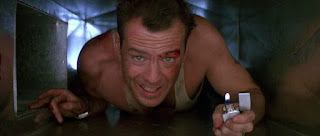Gruff Rhys- Pang! (Album Review)
It would be difficult to name an artist currently working in the popular music industry with such a singular and imaginative vision as Gruff Rhys. Including the soundtrack Set Fire to the Stars, Pang! Is Rhys’ 7th solo LP to date and the 3rd Welsh-speaking LP of his career and further demonstrates the former Super Furry Animals frontman’s aim to expand the range of his musical vocabulary and to push the boundaries of the pop genre. During the making of his last album, the critically acclaimed Babelsberg, Rhys admitted to a period of depression surrounding the bleak nature of his lyrics, with the social and political uncertainty which surrounded the writing and recording of the album contributing to Babelsberg’s angst-ridden collection of timeless pop songs. In recent interviews Rhys has maintained his political outlook, admitting that Pang! still contains the singer-songwriter's social concerns, particularly the invasive and insidious encroachment of social media into our lives. However, the nine mostly up-tempo songs on Pang! shows Rhys departing from the bleak introspection of Babelsberg. The intention on his latest album is to lift us out of our current despondency.
A couple of the songs on Pang!, particularly the jaunty titular opening track and ‘Digidigol’, are reminiscent of much of Rhys’ solo output and would not seem out of place on his earlier LPs Candylion or Hotel Shampoo. The mellow ‘Niwl O Anwiredd’ is in a similar vein, with sashaying trumpet and finger-clicks that recall the jazz-influenced Set Fire to the Stars. However, the addition of a medieval-style choral backing to the track highlights Rhys’ desire to stay away from generic pop. The wide-ranging influences and styles on the LP is emphasised by the ambient Baroque of ‘Ôl Bys/ Nodau Clust’ where treated vocals, sparky synth and church organ interlude combines classical music with electronica.
Operating within a modern folk and world music idiom, the international flavour of Pang! is emphasised by two African-influenced tracks. ‘Bae Bae Bae’ has African rhythms, cyclical fingerpicked guitar and steel drums and is one of the more dance-friendly numbers on the album, slightly reminiscent of Talking Heads’ polyrhythmic incursion into world music or a more organic, less sample-laden track from David Byrne and Brian Eno’s My Life in the Bush of Ghosts. Similarly, ‘Ara Deg (Ddaw’r Awen)’ incorporates balafon and Zulu backing vocals to create another African/Caribbean sounding hybrid. The wonderful ‘Taranau Mai’ has Rhys going far-out and middle-east with tabla percussion and Arabic backing vocal harmonies and the Mariachi horns on the closing track, ‘Annedd I'm Danedd’, shifts the musical landscape to Mexico.
Produced by the South African producer and DJ, Muzi, who also provides backing vocals, the restrained production allows the full range of musicality on offer the room to express itself. The pared back production is most notable on ‘Eli Haul’ whose sparse arrangement of simple acoustic guitar and glockenspiel-sounding synths and closing sample of birdsong creates a folky pastoral feel. At the forefront of the memorably catchy melodies is Rhys’ mellifluous voice.
With the album taking you on a whistle-stop tour of the world, the internationalist perspective of Pang! proves Rhys’ pioneering ambition to explore music’s hinterlands and his seemingly innate knack in crafting deliciously infectious pop from a remarkably eclectic array of musical sources.


.webp)

Comments
Post a Comment